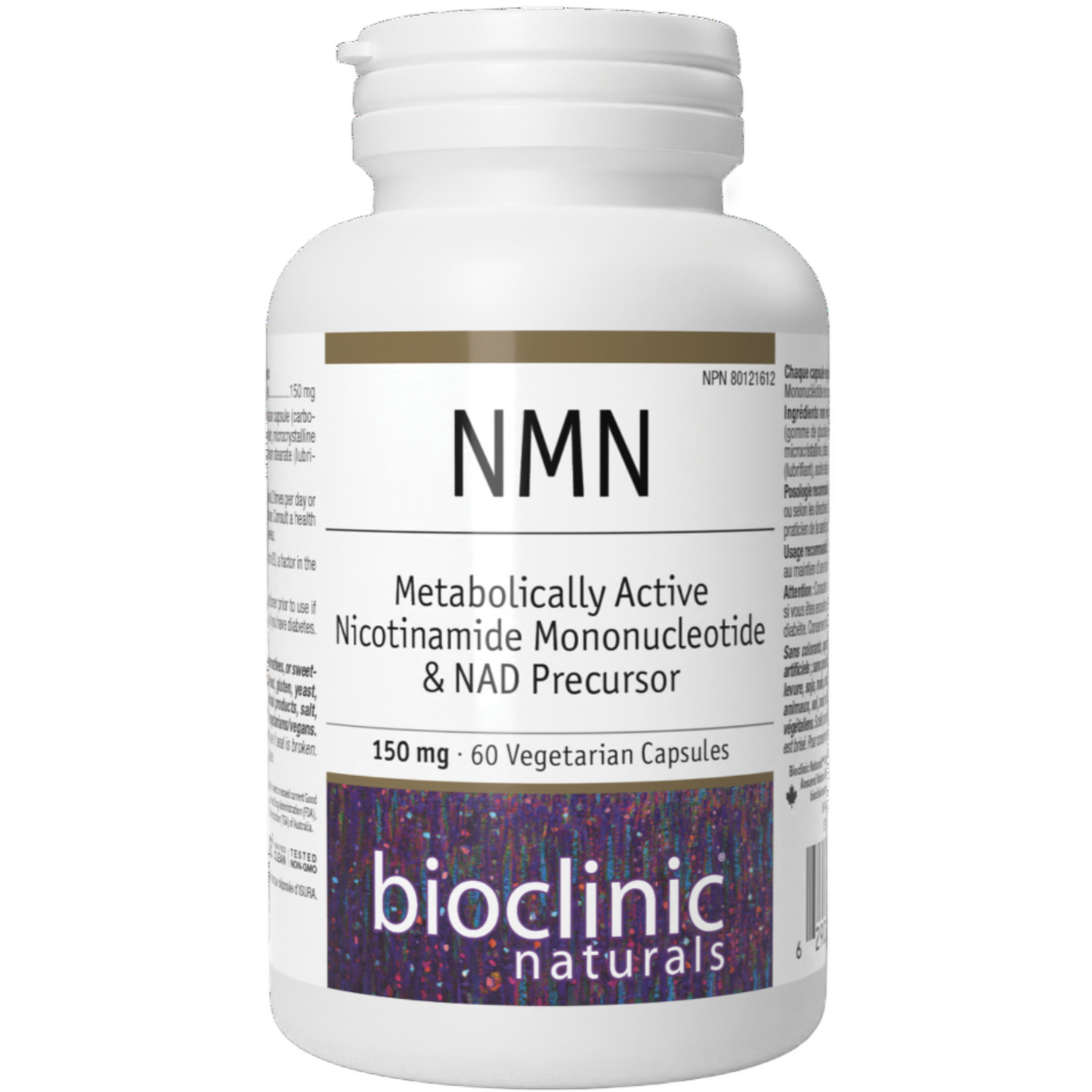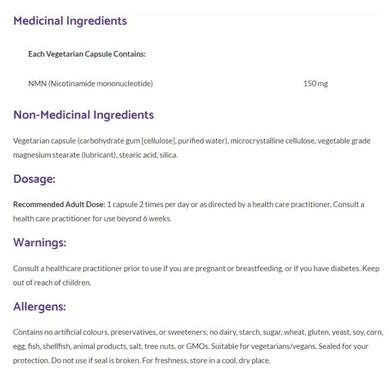Bioclinic Naturals
NMN
NMN
Couldn't load pickup availability
Supports cellular metabolism and energy.
| Each Vegetarian Capsule Contains: | |
| NMN (Nicotinamide mononucleotide) | 150 mg |
Non-Medicinal Ingredients:
Vegetarian capsule (carbohydrate gum [cellulose], purified water), microcrystalline cellulose, vegetable grade magnesium stearate (lubricant), stearic acid, silica.
Recommended Adult Dose:
Take 1 capsule twice daily or as directed by a healthcare practitioner. Consult a health care practitioner for use beyond 6 weeks.
Warnings:
Consult a healthcare practitioner before use if you are pregnant or breastfeeding, or if you have diabetes. Keep out of reach of children.
Allergens:
Contains no artificial colours, preservatives, or sweeteners; no dairy, starch, sugar, wheat, gluten, yeast, soy, corn, egg, fish, shellfish, animal products, salt, tree nuts, or GMOs. Suitable for vegetarians/vegans. For freshness, store in a cool, dry place.
Share




